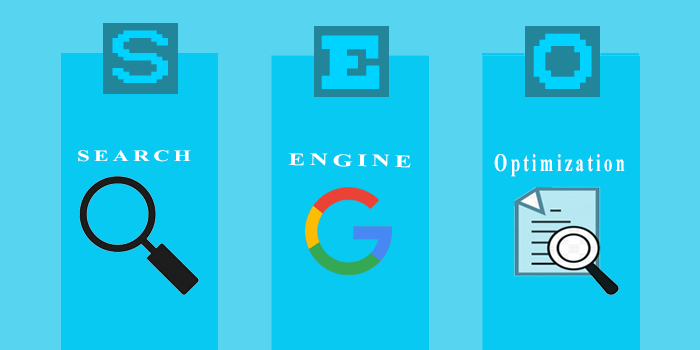Table of Contents
How to Improve User Experience and Mobile Optimization for SEO


In the digital age, optimizing your website for search engines is crucial for driving organic traffic and improving your online visibility. However, it’s equally important to enhance the user experience and cater to the ever-growing number of mobile users. In this article, we will explore various strategies and techniques to achieve both user experience improvement and mobile optimization for SEO success.
SEO Optimization
SEO optimization is the foundation of any successful website. It involves optimizing your site’s content, structure, and overall performance to rank higher in search engine results pages (SERPs). By conducting thorough keyword research, understanding your target audience, and implementing effective on-page and off-page SEO techniques, you can maximize your chances of ranking higher and gaining more visibility.
Keyword Research
Keyword research is a crucial aspect of SEO optimization. By identifying relevant keywords that potential users might use to search for your products, services, or content, you can tailor your website accordingly. Implementing long-tail keywords that are specific and less competitive can bring targeted traffic and improve your chances of ranking higher in search results.
On-Page SEO
On-page SEO refers to optimizing the individual pages of your website to enhance their visibility and relevance. This includes optimizing meta tags, title tags, description tags, and heading tags to accurately describe the content. Additionally, incorporating appropriate keyword density, utilizing alt tags for images, and implementing structured data through schema markup can further improve your on-page SEO.
Off-Page SEO
While on-page SEO focuses on optimizing your website’s content, off-page SEO involves external factors that impact your website’s visibility and credibility. One key aspect of off-page SEO is link building, which involves acquiring high-quality backlinks from reputable websites. These backlinks indicate to search engines that your website is trustworthy and relevant, thus improving your rankings.
Link Building
Link building is an integral part of off-page SEO. By earning backlinks from authoritative websites, you can improve your website’s domain authority and increase its chances of ranking higher in search results. Engaging in content marketing, guest blogging, social media promotion, and outreach campaigns are effective strategies for acquiring valuable backlinks.
Content Marketing
Creating high-quality, informative, and engaging content is essential not only for user experience but also for SEO. By providing valuable content that aligns with your target audience’s interests and needs, you can attract and retain users, increase their time spent on your site, and decrease bounce rates. Sharing your content through various channels, such as social media, can also boost its visibility and reach.
SEO Analysis
Regularly analyzing your website’s SEO performance is crucial to identify areas for improvement and measure the effectiveness of your strategies. Utilizing SEO analysis tools, such as Google Analytics, provides valuable insights into your organic traffic, user behavior, conversion rates, and more. These insights can guide you in optimizing your website further and adapting your SEO efforts accordingly.
SEO Tools
There is a multitude of tools available to support your SEO efforts. From keyword research tools to website auditing and monitoring platforms, these tools can streamline your optimization process and provide valuable data and recommendations. Some popular SEO tools include SEMrush, Moz, Ahrefs, and Google Search Console.
Backlinks
As mentioned earlier, backlinks are crucial for improving your website’s authority and rankings. Acquiring high-quality backlinks from reputable and relevant websites can significantly impact your SEO success. Engaging in guest blogging, building relationships within your industry, and leveraging social media are effective ways to generate valuable backlinks.
Site Architecture
Having a well-organized and easily navigable site architecture enhances both user experience and search engine crawlability. By categorizing your content into logical sections and utilizing a clear menu structure, you help users find what they’re looking for quickly. Moreover, search engine crawlers can easily navigate and index your site, contributing to improved visibility.
User Experience
Delivering a positive user experience is paramount for website success. Users who enjoy visiting your site are more likely to stay longer, engage with your content, and convert into customers or subscribers. Optimizing your site’s speed, navigation, accessibility, and overall design contributes to a seamless user experience and encourages repeat visits.
Mobile Optimization
With the increasing number of mobile users, optimizing your website for mobile devices is no longer optional; it’s a necessity. Mobile optimization involves ensuring that your site is responsive and adjusts correctly to different screen sizes and resolutions. This includes optimizing images, using mobile-friendly fonts, and prioritizing essential content for smaller screens.
Voice Search
The rise of voice-assisted devices and virtual assistants has significantly impacted search behavior. Optimizing your website for voice search involves understanding how people typically phrase their voice queries and incorporating conversational language and long-tail keywords into your content. Providing concise, direct answers to common questions can improve your chances of appearing in voice search results.
Local SEO
For businesses targeting a specific geographic area, implementing local SEO strategies is crucial. Claiming and optimizing your business listings on platforms such as Google My Business, Yelp, and Bing Places improves your visibility in local searches. Additionally, generating positive reviews and obtaining local backlinks can further boost your local SEO efforts.
Social Media Optimization
Leveraging social media platforms to increase your website’s visibility, drive traffic, and engage with your audience can significantly impact your SEO success. Sharing your content, engaging with users, and building a strong social media presence not only boosts your brand’s visibility but also increases the chances of acquiring valuable backlinks.
Long-Tail Keywords
While short and competitive keywords are challenging to rank for, targeting long-tail keywords allows you to focus on more specific search queries. Long-tail keywords typically have lower search volumes but higher conversion rates as they cater to users with clear intent. Conducting thorough keyword research and incorporating long-tail keywords throughout your content can attract highly targeted traffic.
Domain Authority
Domain authority is a metric that indicates the overall credibility and relevance of your website in search engine rankings. Building a strong domain authority requires a combination of high-quality backlinks, valuable content, positive user experience, and good site architecture. Improving your domain authority can enhance your chances of ranking higher for competitive keywords.
Page Speed


Website speed not only affects user experience but also plays a significant role in SEO. A slow-loading site frustrates users and increases bounce rates. Optimizing your site’s performance by compressing images, minimizing server response time, and utilizing caching techniques improves page speed and contributes to better rankings.
Meta Tags
Meta tags, including meta titles and meta descriptions, provide concise summaries of your website’s content. Optimizing these tags with relevant keywords and compelling descriptions enhances your click-through rates in search results. Eye-catching and informative meta tags can entice users to click on your website, contributing to improved organic traffic.
Image Optimization
Images play a crucial role in engaging users, but they can also impact page load times if not optimized correctly. Compressing images, using appropriate formats, and providing descriptive alt tags help search engines understand your visual content. This, in turn, improves your website’s accessibility, search rankings, and overall user experience.
Schema Markup
Schema markup is a structured data vocabulary that provides search engines with additional context about your webpages. By incorporating schema markup into your HTML code, you can enhance your website’s appearance in search results with rich snippets. Rich snippets display additional information, such as star ratings, FAQ sections, or recipe details, improving visibility and attracting users’ attention.
Sitemap
A sitemap is a file that contains an organized list of all the pages on your website. Creating and submitting a sitemap to search engines helps them crawl and index your site more effectively. A well-structured sitemap improves your website’s visibility and ensures that search engines discover all of your important pages.
Anchor Text
Anchor text refers to the clickable text used in hyperlinks. Optimizing anchor text by using relevant keywords provides search engines with additional context about the linked page’s topic. However, it’s important to maintain a natural and diverse anchor text profile to avoid penalties from search engines.
Internal Linking


Utilizing internal linking strengthens the relationship between different pages on your website. By including links within your content that direct users to related or relevant pages, you improve site navigation, encourage engagement, and distribute link equity across your site. Internal linking also helps search engines discover and understand the structure of your website.
External Linking
External linking involves linking to other websites’ relevant and trustworthy content. While this might seem counterintuitive from an SEO perspective, providing outbound links to reputable sources enhances your website’s credibility and shows search engines that you strive to provide valuable information to your users. Just make sure to choose authoritative websites when linking externally.
SEO Audit
Conducting regular SEO audits helps identify and address potential issues that may affect your website’s performance. An SEO audit typically evaluates various factors, such as site architecture, on-page SEO, technical SEO, backlinks, and user experience. By thoroughly analyzing these aspects, you can make necessary adjustments and improvements to boost your website’s overall SEO.
SEO Monitoring
Monitoring your website’s performance and tracking key metrics allows you to identify trends, spot areas for improvement, and measure the effectiveness of your SEO strategies. Regularly monitoring organic traffic, keyword rankings, conversion rates, and user behavior enables you to make data-driven decisions and adapt your optimization efforts accordingly.
Organic Traffic
Organic traffic refers to website visitors who find your site through unpaid search engine results. Increasing organic traffic is a primary goal of SEO, as it indicates that users are finding your website relevant and valuable. By implementing effective SEO strategies, you can attract more organic traffic and grow your online presence.
Paid Search
While SEO focuses on organic traffic, paid search refers to advertising on search engines through platforms like Google Ads. While paid search doesn’t directly impact SEO, incorporating paid search campaigns alongside your SEO efforts can provide additional visibility, attract targeted traffic, and provide valuable insights into keyword performance.
Competitive Analysis
Analyzing your competitors’ strategies and performance is crucial in staying ahead of the game. By conducting a competitive analysis, you gain insights into their keyword targeting, backlink profiles, content strategies, and user experience. This information allows you to identify any gaps or opportunities and adjust your own SEO strategies accordingly.
Website Ranking
Ranking higher in search engine results is a primary goal of SEO. By following best practices and implementing effective optimization strategies, you improve the likelihood of ranking above your competitors. Regularly monitoring your website’s rankings and making necessary adjustments helps maintain and improve your position in search results.
Site Indexing
Search engine indexing refers to the process of adding webpages to search engine databases. By optimizing your website’s crawlability, ensuring all essential pages are accessible, and providing clear internal linking, you improve your chances of having all your pages indexed. Regularly checking and maintaining your website’s index status contributes to better visibility.
Site Map
A site map is a page or file that lists and links to all the pages on your website. While a sitemap doesn’t directly impact rankings, it helps search engine crawlers navigate and understand your site structure better. Additionally, submitting your sitemap to search engines ensures that they discover all of your webpages.
Crawling
Search engine crawling is the process where automated bots, known as crawlers or spiders, systematically browse websites to discover and index their content. Optimizing your website’s crawlability involves allowing search engine spiders to access all essential pages easily. This includes eliminating any crawl errors, organizing pages with logical navigation, and avoiding duplicate content issues.
XML Sitemap
An XML sitemap is an XML file that lists URLs of all the pages on your website, along with additional metadata about each page. Submitting your XML sitemap to search engines helps them understand your site structure better and prioritize crawling and indexing. This improves your chances of having all essential pages indexed.
404 Errors
A 404 error occurs when a web page cannot be found. These errors can negatively impact user experience and result in search engines devaluing or removing the affected pages from their index. Regularly monitoring and fixing 404 errors by implementing proper redirects or updating internal links ensures a smooth user experience and maintains your website’s SEO performance.
Title Tags
Title tags are HTML elements that define the title of a web page. Optimizing your title tags includes using relevant keywords and creating compelling titles that accurately reflect your content. Engaging and keyword-rich title tags improve click-through rates in search results and provide search engines with valuable information about your page’s topic.
Description Tags
Description tags, also known as meta descriptions, provide a summary of a web page’s content. Optimizing description tags involves crafting concise and engaging descriptions that entice users to click on your website in search results. While meta descriptions don’t directly impact rankings, they influence click-through rates, thereby indirectly affecting your organic traffic.
Heading Tags
Heading tags (H1, H2, H3, etc.) structure the headings and subheadings within your content. Organizing your content with clear and descriptive heading tags enhances readability and user experience. Furthermore, incorporating relevant keywords in these tags provides search engines with signals about your page’s content and topic.
Alt Tags
Alt tags, or alternative text, are descriptive attributes added to image tags in HTML. Optimizing alt tags involves providing accurate and meaningful descriptions of the images on your website. This not only improves accessibility for visually impaired users but also helps search engines understand your images and their relevance to the surrounding content.
Canonical Tags
Canonical tags are HTML elements that help prevent duplicate content issues. By specifying the canonical version of a webpage, you signal to search engines which version should be considered the primary one. This prevents search engines from indexing multiple versions of the same content, thereby avoiding potential penalties and ensuring accurate rankings.
Keyword Density
Keyword density refers to the percentage of times a keyword appears on a webpage compared to the total word count. While there is no definitive ideal keyword density, it’s generally recommended to use relevant keywords naturally throughout your content. Over-optimizing with an excessive keyword density can be seen as keyword stuffing and may result in penalties.
Site Speed
Website speed is a crucial factor that directly impacts user experience and SEO performance. Optimizing your site’s speed involves reducing page load times by minimizing file sizes, leveraging
browser caching, and optimizing server response times. A fast-loading site creates a positive user experience, reduces bounce rates, and improves search engine rankings.
Site Security


Ensuring your website is secure is not only critical for protecting user data but also for maintaining SEO performance. Search engines prioritize secure websites (HTTPS) over non-secure ones (HTTP). Implementing SSL certificates, encrypting sensitive information, and regularly updating security measures demonstrate to search engines that you prioritize user safety.
Rich Snippets
Rich snippets are additional visual elements displayed in search results that provide more information about a webpage’s content. These elements can include star ratings, product prices, recipe details, or event information. Implementing structured data through schema markup can increase your chances of having rich snippets displayed, attracting users’ attention, and improving click-through rates.
Structured Data
Structured data is a standardized format that provides search engines with additional context about your webpage’s content. By incorporating structured data using schema markup, you can help search engines understand and display your content more accurately. This enhances your visibility in search results and increases the chances of appearing in rich snippets.
Site Crawlability
Site crawlability refers to how easily search engine crawlers can navigate and access the pages on your website. An accessible site structure, logical internal linking, and proper use of robots.txt and XML sitemaps all contribute to an optimized crawlability. Ensuring your website is crawlable improves its indexation and visibility in search results.
Dedicated IP
A dedicated IP address is an exclusive internet protocol address assigned solely to your website. While it does not directly impact rankings, a dedicated IP can be beneficial for SEO if your website shares hosting with suspicious or spammy sites. Having a dedicated IP reinforces your website’s credibility and ensures better server performance.
301 Redirects
301 redirects are permanent redirects from one URL to another. They inform both users and search engines that the original page has been permanently moved to a new location. Implementing 301 redirects is crucial when changing URLs or consolidating duplicate content. By redirecting old URLs to new ones, you preserve link equity and maintain your rankings.
302 Redirects
302 redirects are temporary redirects that inform search engines that the change is only temporary. Unlike 301 redirects, 302 redirects do not transfer link equity, which can impact SEO rankings and visibility. It’s important to use the appropriate redirect type based on the intended permanence of the changes.




